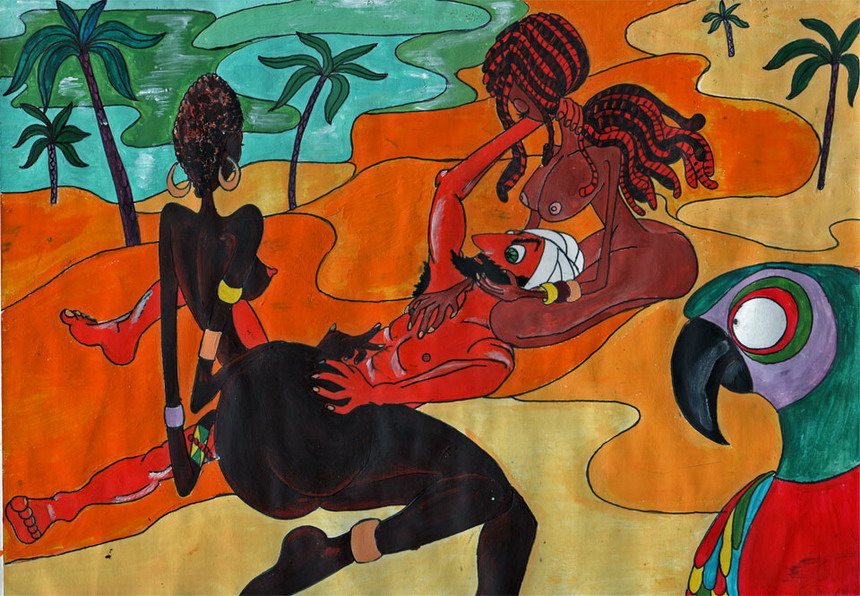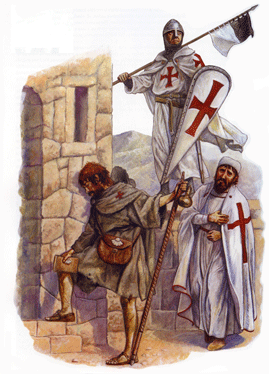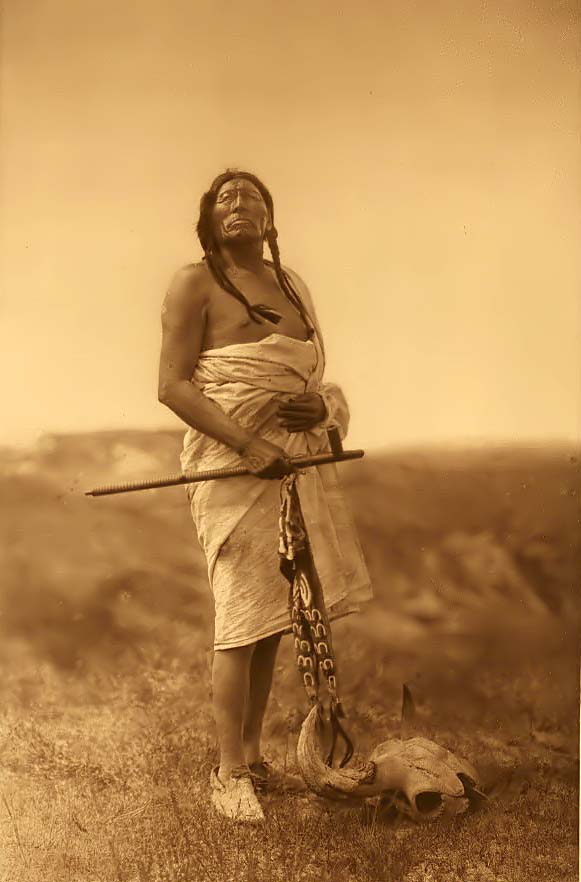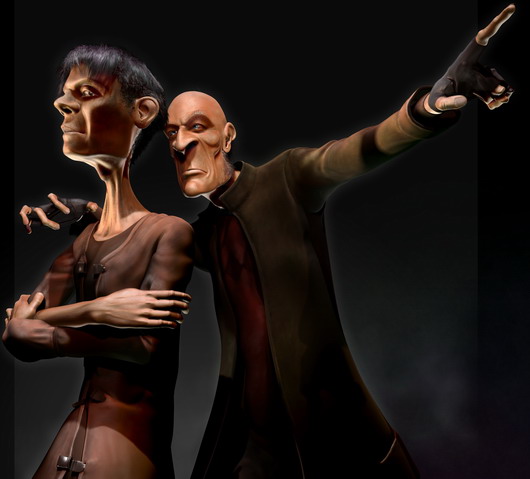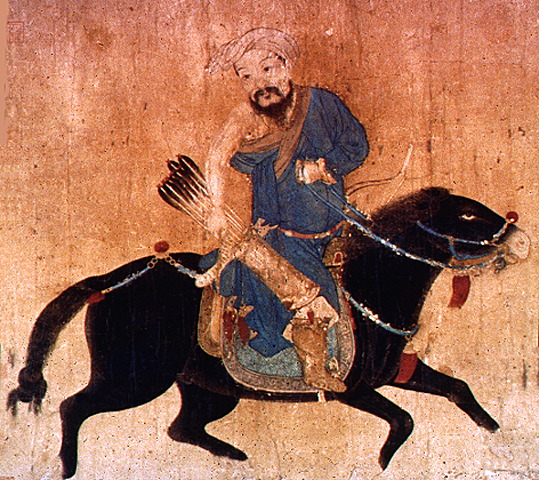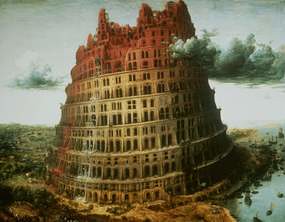
This, what I am going to present here in short instalments, is a mainstream history of the Knights Templar, written in the 19th century by Charles G. Addison.
The Templars were entrusted by the Church and States of Europe to be the spearhead of the crusades. Although individual Templars had taken a vow of poverty, in the process to fight off the infidels from the Holy Land they gained immense wealth and influence. Jerusalem was won and lost several times by the crusaders through the 12th and 13th centuries. Addison notably cites eyewitness descriptions from both the Crusaders and their Muslim opponents to give a well-rounded picture. After the crusades, and the loss of the Holy Land, the Templars began a quick decline from which they never recovered. Accused of heresy and bizarre secret rituals, the Templars were subjected to torture and the stake.
The second portion of the book focuses on Temple Church in London, the English headquarters of the Templars in their prime. Addison describes the architecture and history of this edifice. The Temple Church eventually became the centre of the legal profession in the City of London, a hostel and school for lawyers.
The author quotes liberally from contemporary accounts in Latin, Norman French, and Early Modern English (which he thankfully occasionally translates), and includes extensive citations of source documents. If you want to learn the fascinating history of the Knights Templar without any extraneous theorizing, this is an excellent book to start with.
The History of the Knights Templar
by Charles G. Addison
[1842]
PREFACE.
THE extraordinary and romantic career of the Knights Templars, their exploits and their misfortunes, render their history a subject of peculiar interest.
Born during the first fervour of the Crusades, they were flattered and aggrandized as long as their great military power and religious fanaticism could be made available for the support of the Eastern church and the retention of the Holy Land, but when the crescent had ultimately triumphed over the cross, and the religion-military enthusiasm of Christendom had died away, they encountered the basest ingratitude in return for the services they had rendered to the Christian faith, and were plundered, persecuted, and condemned to a cruel death, by those who ought in justice to have been their defenders and supporters. The memory of these holy warriors is embalmed in all our recollections of the wars of the cross; they were the bulwarks of the Latin kingdom of Jerusalem during the short period of its existence, and were the last band of Europe's host that contended for the possession of Palestine.
To the vows of the monk and the austere life of the convent,
p. viii
the Templars added the discipline of the camp, and the stern duties of the military life, joining
"The fine vocation of the sword and lance,With the gross aims, and body-bending toilOf a poor brotherhood, who walk the earthPitied."
The vulgar notion that the Templars were as wicked as they were fearless and brave, has not yet been entirely exploded; but it is hoped that the copious account of the proceedings against the order in this country, given in the ninth and tenth chapters of the ensuing volume, will tend to dispel many unfounded prejudices still entertained against the fraternity, and excite emotions of admiration for their constancy and courage, and of pity for their unmerited and cruel fate.
Matthew Paris, who wrote at St. Albans, concerning events in Palestine, tells us that the emulation between the Templars and Hospitaliers frequently broke out into open warfare to the great scandal and prejudice of Christendom, and that, in a pitched battle fought between them, the Templars were slain to a man. The solitary testimony of Matthew Paris, who was no friend to the two orders, is invalidated by the silence of contemporary historians, who wrote on the spot; and it is quite evident from the letters of the pope, addressed to the Hospitaliers, the year after the date of the alleged battle, that such an occurrence never could have taken place.
The accounts, even of the best of the antient writers, should not be adopted without examination, and a careful comparison with other sources of information. William of Tyre, for instance, tells us that Nassr-ed-deen, son of sultan Abbas, was taken prisoner by the Templars, and whilst in their hands became a convert to the Christian religion; that he had learned the rudiments
p. ix
of the Latin language, and earnestly sought to be baptized, but that the Templars were bribed with sixty thousand pieces of gold to surrender him to his enemies in Egypt, where certain death awaited him; and that they stood by to see him bound hand and foot with chains, and placed in an iron cage, to be conducted across the desert to Cairo. Now the Arabian historians of that period tell us that Nassr-ed-deen and his father murdered the caliph and threw his body into a well, and then fled with their retainers and treasure into Palestine; that the sister of the murdered caliph wrote immediately to the commandant at Gaza, which place was garrisoned by the Knights Templars, offering a handsome reward for the capture of the fugitives; that they were accordingly intercepted, and Nassr-ed-deen was sent to Cairo, where the female relations of the caliph caused his body to be cut into small pieces in the seraglio. The above act has constantly been made a matter of grave accusation against the Templars; but what a different complexion does the case assume on the testimony of the Arabian authorities!
It must be remembered that William archbishop of Tyre was hostile to the order on account of its vast powers and privileges, and carried his complaints to a general council of the church at Rome. He is abandoned, in everything that he says to the prejudice of the fraternity, by James of Vitry, bishop of Acre, a learned and most talented prelate, who wrote in Palestine subsequently to William of Tyre, and has copied largely from the history of the latter. The bishop of Acre speaks of the Templars in the highest terms, and declares that they were universally loved by all men for their piety and humility. "Nulli molesti erant!" says he, "sed ab omnibus propter humilitatem et religionem amabantur."
The celebrated orientalist Von Hammer has recently brought forward various extraordinary and unfounded charges, destitute
p. x
of all authority, against the Templars; and Wilcke, who has written a German history of the order, seems to have imbibed all the vulgar prejudices against the fraternity. I might have added to the interest of the ensuing work, by making the Templars horrible and atrocious villains; but I have endeavoured to write a fair and impartial account of the order, not slavishly adopting everything I find detailed in antient writers, but such matters only as I believe, after a careful examination of the best authorities, to be true.
It is a subject of congratulation to us that we possess, in the Temple Church at London, the most beautiful and perfect memorial of the order of the Knights Templars now in existence. No one who has seen that building in its late dress of plaster and whitewash will recognize it when restored to its antient magnificence. This venerable structure was one of the chief ecclesiastical edifices of the Knights Templars in Europe, and stood next in rank to the Temple at Jerusalem. As I have performed the pilgrimage to the Holy City, and wandered amid the courts of the antient Temple of the Knights Templars on Mount Moriah, I could not but regard with more than ordinary interest the restoration by the societies of the Inner and the Middle Temple of their beautiful Temple Church.
The greatest zeal and energy have been displayed by them in that praiseworthy undertaking, and no expense has been spared to repair the ravages of time, and to bring back the structure to what it was in the time of the Templars.
In the summer I had the pleasure of accompanying one of the chief and most enthusiastic promoters of the restoration of the church (Mr. Burge, Q.C.) over the interesting fabric, and at his suggestion the present work was commenced. I am afraid that it will hardly answer his expectations, and am sorry that the interesting task has not been undertaken by an abler hand.
Temple, Nov. 17, 1841.
p. xi
P.S. Mr. Willement, who is preparing some exquisitely stained glass windows for the Temple Church, has just drawn my attention to the nineteenth volume of the "MEMOIR ES DE LA SOCIÉTÉ ROYALE DES ANTIQUAIRES DE FRANCE," published last year. It contains a most curious and interesting account of the church of Brelevennez, in the department des Cotes-du-Nord, supposed to have formerly belonged to the order of the Temple, written by the Chevalier du FREMANVILLE. Amongst various curious devices, crosses, and symbols found upon the windows and the tombs of the church, is a copper medallion, which appears to have been suspended from the neck by a chain. This decoration consists of a small circle, within which are inscribed two equilateral triangles placed one upon the other, so as to form a six-pointed star. In the midst of the star is a second circle, containing within it the LAMB of the order of the Temple holding the banner in its fore-paw, similar to what we see on the antient seal of the order delineated in the title-page of this work. Mr. Willement has informed me that he has received an offer from a gentleman in Brittany to send over casts of the decorations and devices lately discovered in that church. He has kindly referred the letter to me for consideration, but I have not thought it advisable to delay the publication of the present work for the purpose of procuring them.
Mr. Willement has also drawn my attention to a very distinct impression of the reverse of the seal of the Temple described in page 106, whereon I read very plainly the interesting motto, "TESTIS SVM AGNI. (to be continued…)
 It seems Israel is looking to do a clean sweep. The old saying is, if you want a job done right you have to do it yourself. So much for the value of the UN and other peace keeping agencies. Watch now how the U.S. Security Council springs into action to sanction Israel… Erm… Yeah Right!!!
It seems Israel is looking to do a clean sweep. The old saying is, if you want a job done right you have to do it yourself. So much for the value of the UN and other peace keeping agencies. Watch now how the U.S. Security Council springs into action to sanction Israel… Erm… Yeah Right!!!

